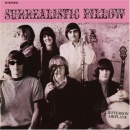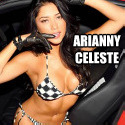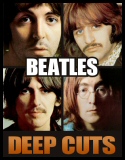Music Home / Entertainment Channel / Bullz-Eye Home
 Buy your copy from Amazon.com
Buy your copy from Amazon.com
| Jefferson Airplane: Surrealistic Pillow Released: 1967 |
The Summer of Love produced as many musical and cultural artifacts as it did worthwhile items for consideration. As we move farther and farther away from that time and societal attitudes continue to change and grow, it’s easy for today’s generation to look back and just kind of scratch its collective head, much like the generation that spawned the children who would become the hippies of that time did. In some ways, the summer of ’67 was indeed a cultural revolution, with LSD playing a vital role in style, art, and attitude. But on many fronts, it was a naïve failure. The kids meant well, but failed to realize that the rest of the country outside of San Francisco and other hippie meccas wasn’t going to just give up its standards and start living communally in beads, bangles, and bell-bottoms turning on to the latest acid dream that the radio was selling.
For some reason, the kids of my generation wanted a piece of that old pie to try. And so Gen X got to see the rebirth of musical festivals on a large scale. Some, like Lollapalooza, went around the country like a modern hippie caravan. Others, like “Woodstock II,” were successful even though modern commercialization and standard ticket prices belied the idea that this was a new dawn of the Communal Happening for the New Generation. And the less said about Woodstock III the better. By that point, the old hippie ethos was literally bathed in shit and sent packing. But the kids love the nostalgia.
Back in ’67, San Francisco, California was the epicenter of all things day-glo and hippie. Haight-Ashbury was the scene and everywhere you went around the area was a mini revolution of sorts on the pop culture front. And, for a short time, a lot of bands were breaking out and making their own scene. Along with the Grateful Dead, the Jefferson Airplane was the most recognizable act from ye olde Frisco. Their first album, Jefferson Airplane Takes Off, was a decent folk excursion but nothing earth-shattering. When original female vocalist Signe Anderson quit the band to have her first baby and was replaced by Grace Slick, things started changing.
Slick brought with her two songs that would become and remain the Airplane’s twin anthems. These were, of course, “White Rabbit” and “Somebody To Love.” The former was about as acid as it got at the time, taking Lewis Carroll’s “Alice in Wonderland” and wringing every bit of “Well he obviously took drugs to write this thing, and we do, too, so we’re spreading that message” idea (whether or not it was actually true) and beat it to death. The latter was a giant call for people to get together and love, baby. It was as trite as The Beatles’ “The Word” on Rubber Soul, but more dramatic than the dippiness of “All You Need Is Love” (for the record, the Fab Four were at their best when they weren’t preaching this noise, as on Revolver).
Both songs were huge hits, not only radio-wise, but hippie-wise as well. The album the songs landed on, Surrealistic Pillow, was pretty much another average folk-rock affair with a tinge of acid at the edges. Hardly this great earth-shaker that it’s been held up as for so long, but perhaps you just had to be there. After all, how many Deadheads have told me that that band’s music is truly great only after you’ve smoked or dropped something to go along with it?
After all, the album contains a direct ode to LSD, the floaty “D.C.B.A.-25,” written by Paul Kantner, who these days (and, well, for years afterwards, actually) comes off as a near acid casualty who still can’t shut the hell up about all his trips both onstage and off. Skip Spence’s “My Best Friend,” on the other hand, almost sounds like a jingle for Coca-Cola with its good-timin’ harmonies and light atmosphere. It’s something that the Lovin’ Spoonful could have handled much better and with the right dose of humor.
Elsewhere, there’s the acoustic instrumental “Embryonic Journey” which would later be rebirthed by Jimmy Page and Led Zeppelin as “Black Mountainside” and done much better on their first album. And of course there’s “Plastic Fantastic Lover” which is a calling out against consumerism and all that crap that was getting in the way of the communal happening, man. But all this bluster couldn’t cover up the fact that the rest of the album, with such tunes as Marty Balin’s “Comin’ Back To Me” and “3/5 of a Mile in 10 seconds” was nothing but empty psychedelia that wanted to be dark, brooding, and beautiful. They had nothing on the Doors, who played up this same kind of schlock with greater conviction thanks to Jim Morrison being the sort of guy whose (death) trip bullshit rocked harder.
If anything, Surrealistic Pillow was the kind of nonsense that Frank Zappa was directly skewering on his We’re Only in It for the Money LP. The Airplane and its buddies were perfect fodder for Zappa and his Mothers of Invention to ridicule with an honest, well-opened eye that wasn’t tainted with any sort of acid dreams. Hell, Zappa was living right there in Laurel Canyon and got a constant taste of the times right at the source. The fact that his works were coming out at around the same time all this stuff was going on only makes his statements stronger, than say, those of a guy like me who can only look back and agree.
Yet Surrealistc Pillow remains as one of Jefferson Airplane’s top albums. The follow-up, After Bathing at Baxter’s, took the LSD influence to its annoying extreme and resulted in an album that is more lazy and uninspired that it is listenable. Through the rest of the ‘60s, the Airplane would have other successes, notably with the title track to Volunteers, which actually rocked and shook off some of its flower power naivete. But most of the newcomers still want to hear “White Rabbit” and “Somebody To Love,” and if anything, those two songs will keep this album selling and writers writing about it.
jthompson@bullz-eye.com






